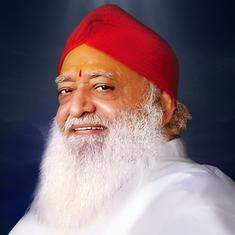Hansda Sowendra Shekhar won the Sahitya Akademi Yuva Puraskar 2015 for his debut novel, The Mysterious Ailment of Rupi Baskey, a book of fiction on Santhal life. His second book, The Adivasi Will Not Dance, is a collection of short stories that narrate the diverse experiences of people of tribal origins. It ran into unnecessary furore, and was banned for some time by the state of Jharkhand, with the writer being temporarily suspended from his post of medical doctor. However, this story of banning and suspension had a happy end, with both the ban being lifted and Shekhar rehabilitated in his job. He has now rewarded us with his third book, in a third genre.
Jwala Kumar and the Gift of Fire is a fantastical tale for children with subtle doses of Shekhar’s visions that veer away from the Indian metropolis and its comfortable middle-class. Shekhar works on the curiosity of children – both to satisfy it to give joy, and to pique it to educate. The titular protagonist is a dragon, which for Indian children may or may not be a novelty, depending on whether they are already familiar with the Harry Potter or the How to Train Your Dragon series.
Enter the dragon
Jwala Kumar is a benign young creature who rewards the human family that takes him in on a cold rainy night. The rural family is greatly impoverished, and affected by some very Indian fundamental and elemental concerns, such as heavy rain, the cold, low daily wages, lack of easy entry into (economically viable) English education, and (socially expected) smartphone (internet) access. Still, Mohan Chander, Rupa Devi, and their children, Naren, Biren, and Namita, treat Jwala Kumar with great love and care.
They cannot decide what the creature is, until Biren finds out from one of his more tech-savvy (or affluent) school-friends about “dragons”. But the fire of hunger in the belly of all the children, dragon and human, is strong enough for Mohan and Rupa to try to extinguish it with all their efforts. It is another matter that Jwala Kumar can lend a hand by producing fire from his mouth and putting it to good use.
And so, from the first night, Jwala Kumar starts to provide fire for the family’s oven, and the family later discovers that his guano is excellent fuel. Eventually, in a long-drawn-out winter storm, Jwala Kumar quietly and quickly lights up fires for all the village households as his parting gift, as without electricity and dry firewood they run extreme risks. What is different here from say the stories of The Shoemaker and the Elves or a Cinderella with her fairy godmother, even as Shekhar has used the (often-Western) mythical creature of the dragon, is that no magical boon is able to completely alleviate the abject poverty of this Indian family from the hinterland. Jwala Kumar may save a child from a snake or cure Mohan of fever (pneumonia?) caught travelling back and forth from his daily wage job in the rain, but the reliefs he provides are only temporary and limited.
How the other half eats
It is for these reasons, among many other compelling narrative and illustrative ones, that Jwala Kumar and the Gift of Fire needs to be read by, or to, young children reading and listening in English in comfortable homes. If opening the minds of children to India’s diversity, including its poverty, is essential, this book offers a way to do it gently but surely. Jwala Kumar is a must-read for the young to ask questions and to observe the differences in childhoods across India.
After all, how can a child from a middle-class family not exclaim in wonder, if not in indignation, at the delight with which Shekhar’s child protagonists salivate at the rats roasted by Jwala Kumar to feed them? The children’s “mouth watered on seeing those roasted rats...The rats were roasted so well. Nearly perfect”.
Young readers may miss out on the careful protective ring that the family instinctively throws around Jwala Kumar, keeping him hidden at all times, knowing that because of his difference from the rest, and as a member of a minority, contemporary (village) society may not be too kind to him. But they are unlikely to ignore these roasted rats that Jwala Kumar serves the children, especially if the only proteins these readers are used to are the daals that start upwards of Rs 70 per kilogram.
It is possible that there are families which do not think it necessary for their children to learn of diversity or India’s abject poverty. In this book they will find other wonders too, starting with the attractive and mysterious cover designed by Maithili Doshi Aphale, and the wonderfully-etched illustrations by Krishna Bala Shenoi, which play with light and shade to produce drama and warmth. Young readers will also gently learn newer, more complex words, introduced carefully by the author.
But (more importantly, and a little covertly) such adults and children also need to be jolted by Shekhar’s gentle beastly and human characters, who live a life outside the pale of the imaginations of readers of English fiction from India.

Jwala Kumar and the Gift of Fire, Hansda Sowvendra Shekhar, Speaking Tiger, Talking Cub.
Maaz Bin Bilal is Assistant Professor at Jindal School of Liberal Arts and Humanities where he teaches a course on children’s literature.










